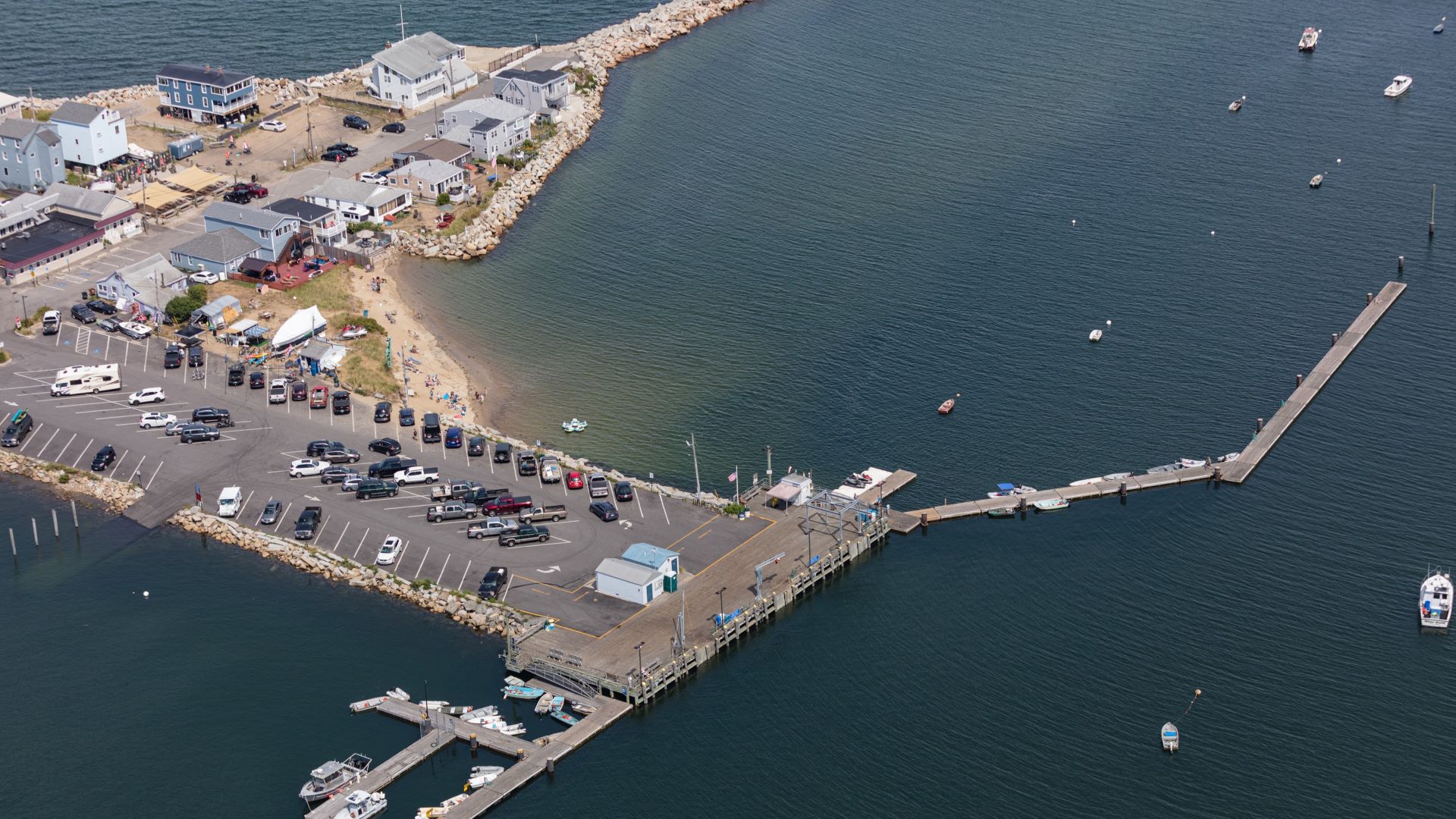Forty-five million dollars to address erosion at Camp Ellis. Thirty-five million for Wolfe’s Neck Farm to promote climate-friendly farming practices nationwide. Twenty million to protect vital infrastructure from the effects of climate change. Five million to aid farmers impacted by PFAS contamination.
Yes, 2022 was the year that politicians in Washington and Augusta responded to the mounting climate crisis by pumping hundreds of millions of dollars into mitigating the impacts of rising seas and the warming planet. In Maine, the money went to everything from farming to forestry, as The Maine Monitor and others highlighted damage from climate change, “forever chemicals,” and other pressing environmental problems.
The money came from a variety of sources, for projects large and small, scattered across all 16 counties. More than $250 million for Maine projects (not all of it climate or environmental related) came in the form of earmarks in the $1.7 trillion federal spending bill passed in December.
On the energy and environmental side, research and training won big in the federal spending bill, particularly for programs aimed at training technicians for the jobs of the future, from maintaining offshore wind turbines to repairing electric cars.
Southern Maine Community College was awarded $750,000 to add more trainees to its Electric Vehicle Repair Certification program, while $2.75 million was set aside for Northern Maine Community College in Presque Isle and Maine Maritime Academy in Castine to develop an offshore wind turbine technician training program. It’s the first internationally certified training provider in the wind power industry in the Northeast.
The omnibus bill also included $3 million to establish a PFAS Research Center at the University of Maine, and an additional $4 million to help the school establish a system for tracking tick-borne illnesses and conduct public health outreach around tick-borne illnesses in rural communities. Climate change and rising temperatures are partially to blame for an explosion of tick-related illnesses in recent years, with reports of Lyme disease increasing twenty-fold between 2000 and 2016, according to the Center for Public Integrity.
The Maine Mineral and Gem Museum was awarded $725,000 to upgrade lab equipment for lithium and geological research, a nod to the recent discovery, first reported in The Maine Monitor last fall, of what appears to be the world’s richest untapped reserves of lithium, a mineral essential for building large batteries and other renewable energy technology.
The federal spending bill also provided funding for several infrastructure projects, including $3.5 million as part of an effort to keep the wastewater treatment plant in Saco above water, one of the six wastewater treatment plants in Maine at risk of being overrun by rising seas in the coming decades.
Fish passage and marsh restoration efforts received tens of millions of dollars in funding at both the state and federal levels. The Maine Natural Resource Conservation Program announced in early December that it had awarded more than $5.7 million for 24 projects aimed at restoring, enhancing or protecting 400 acres of wetlands around the state from development.
“This funding round included projects that not only meet Maine’s mitigation requirements, but also meet statewide goals for addressing marsh migration and climate resiliency,” said Commissioner Melanie Loyzim of the Maine DEP in a statement. You can see the full list of federal earmarks for Maine here.
A week later, U.S. Sens. Susan Collins and Angus King trumpeted the awarding of more than $22 million from the National Oceanic and Atmospheric Administration to remove two dams that are no longer in use and install fish ladders at two additional dams in the Penobscot and St. Croix rivers. That’s part of an effort to improve passage for the endangered Atlantic salmon and other migratory fish species. The bulk of the money ($14.8 million) will be allocated to the Department of Marine Resources, with the remainder flowing to the New Brunswick, Canada-based Atlantic Salmon Federation.
Large solar projects in Gorham and South Berwick also got a big influx of cash as part of the Inflation Reduction Act, which passed in August, with nearly two companies, Knight’s Pond Solar and Gorham ME 1, receiving nearly $10 million each for separate projects, a 6.9 megawatt array in Gorham and a 4.98 megawatt array in South Berwick.
Funds from the Inflation Reduction Act will also be used to help 11 tribes plan and adapt to climate change, including the Passamaquoddy, which received $5 million as part of the program.
The state also awarded tens of millions of dollars this year as part of its efforts to fight climate change, including announcing $5.4 million for clean energy jobs, training, research and climate change resiliency. Gov. Janet Mills has made expanding Maine’s clean energy workforce a priority through her Clean Energy Partnership, a part of the state’s climate action plan, Maine Won’t Wait, which has a goal of more than doubling Maine’s clean energy and energy efficiency jobs to 30,000 by 2030.
The state funds tended to be directed toward less flashy projects, with many communities planning to use the money to conduct energy audits, or weatherize and upgrade heating systems in municipal buildings, with towns including Greenwood, Lamoine, Livermore Falls and Millinocket planning to install heat pumps or new insulation.
With their $121,388 award, Freeport and Yarmouth plan to hire a shared sustainability coordinator, while Hallowell will put its $2,000 toward buying the police force a Ford F-150 Lightning EV pickup truck and installing a level two charger in the parking lot. The grants are part of the Community Resilience Partnership, in which municipalities can apply for up to $125,000 for projects that reduce greenhouse gas emissions and help the community adapt to climate change impacts.
Read the full list of awards here and here.
Lisbon plans to use part of its $49,897 to convert a former mill site to community green space, while Fort Kent will use its $50,000 to map culverts and storm drains, and create new precipitation and flood modeling.
“With these funds, the town of Fort Kent will be able to fully evaluate problems residents are having due to an increased amount of rainfall and runoff,” said Cindy Bouley, community relations officer for Fort Kent, in a press release. “These studies will better position the town to apply for future grants to upgrade our failing systems and increase our capacity to withstand climate change, mitigate the potential adverse effects of heavy rainfall, and increase the safety of our residents.”
Kate Cough covers the environment for The Maine Monitor. Reach her with story ideas by email: gro.r1758151713otino1758151713menia1758151713meht@1758151713etak1758151713.








